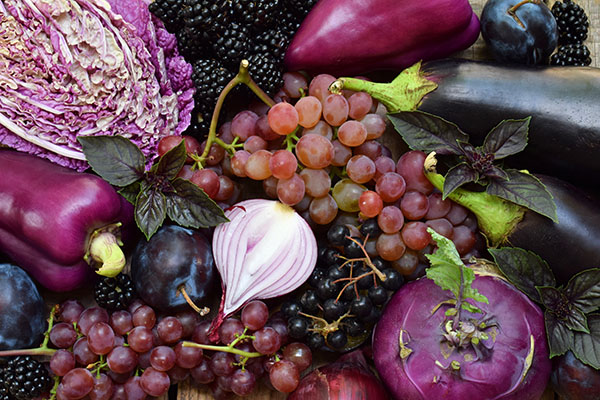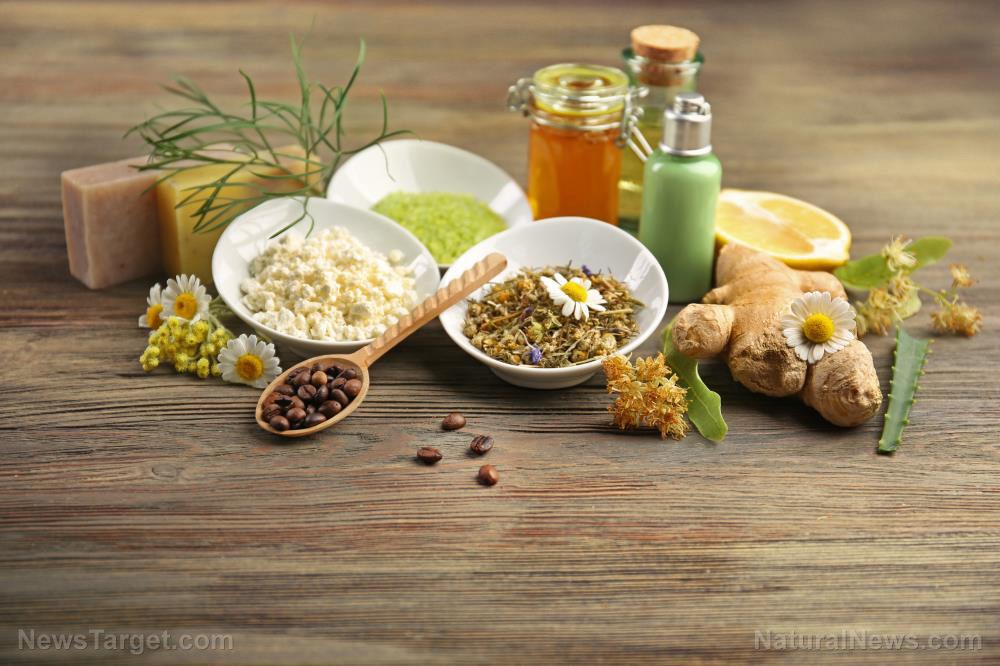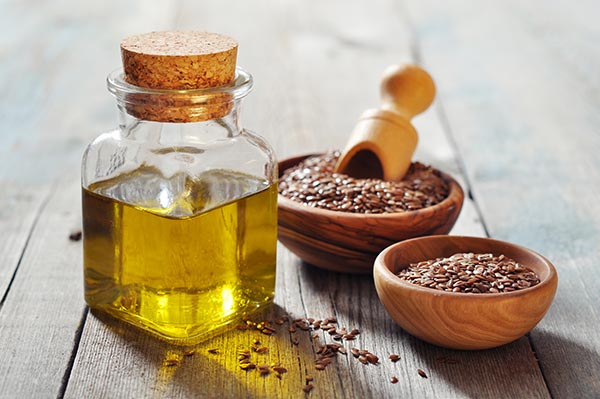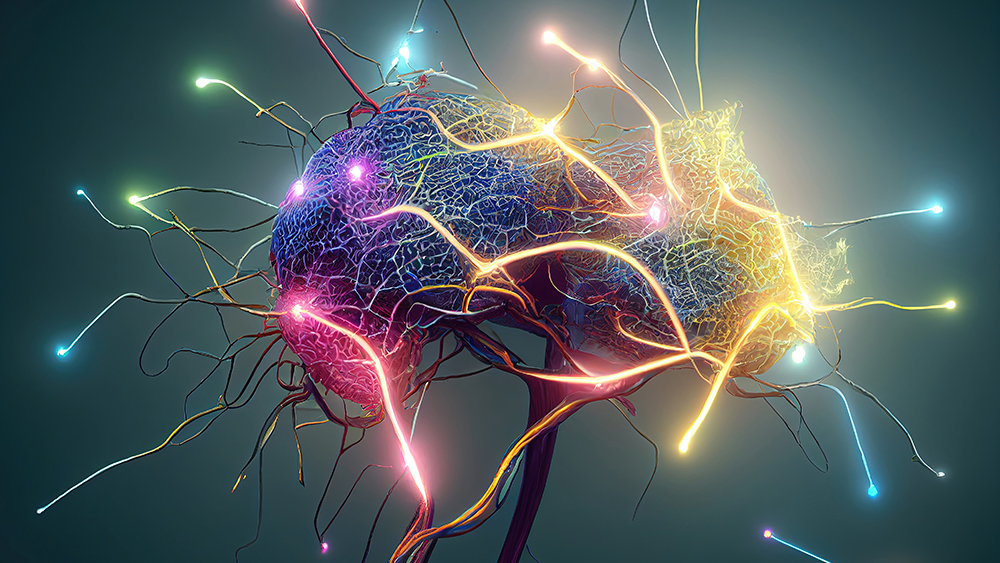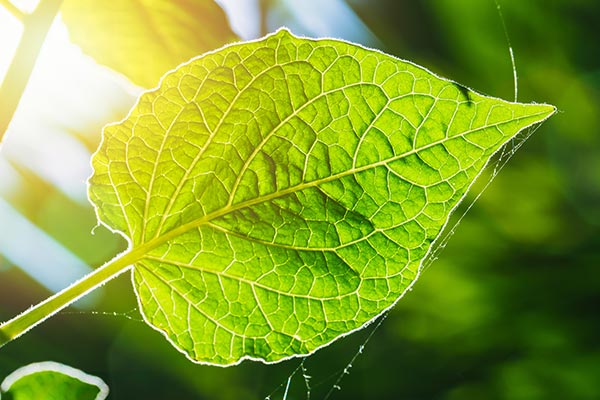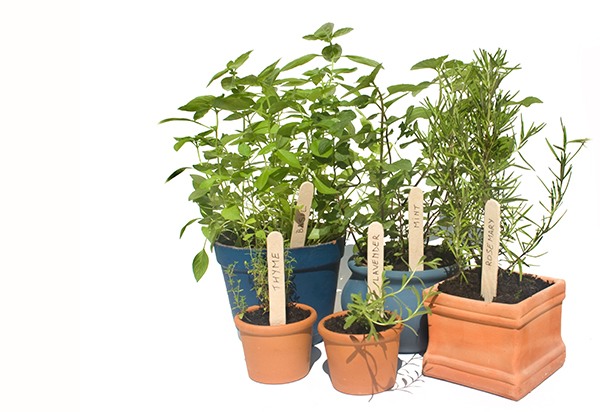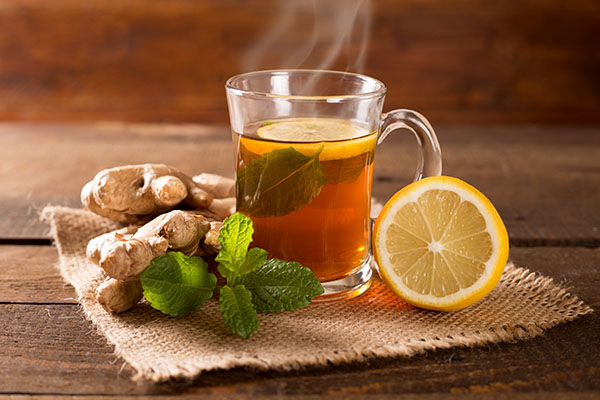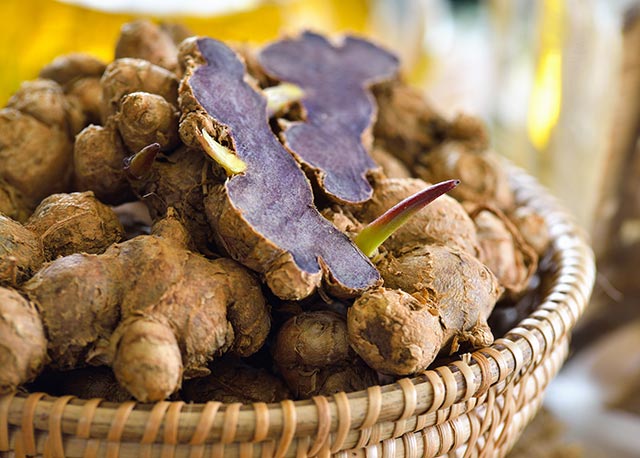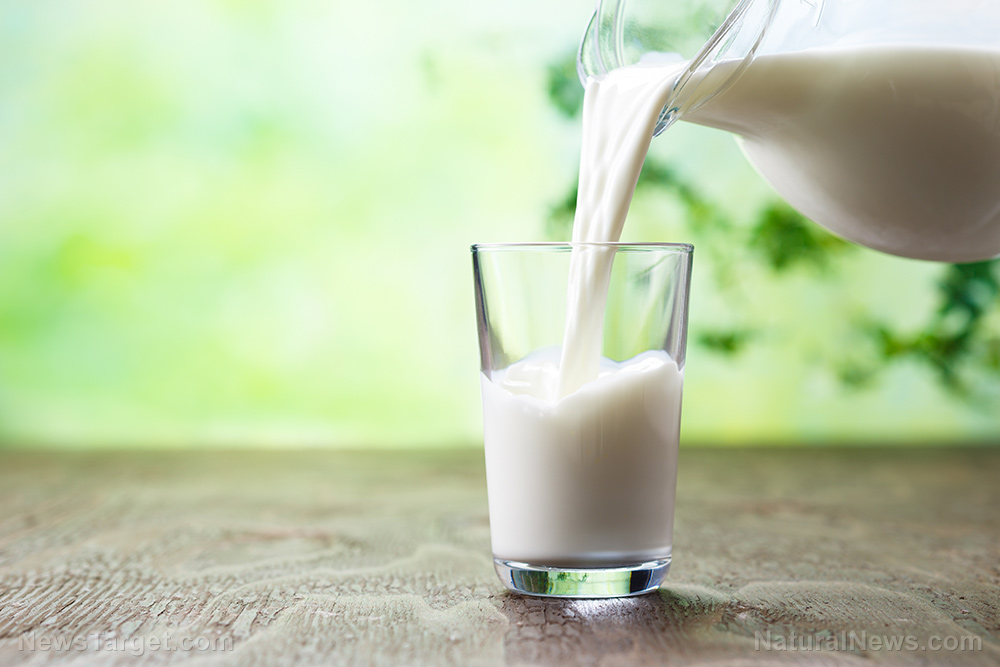12 Potent ANTICANCER agents found in edible plants
01/30/2024 / By Evangelyn Rodriguez
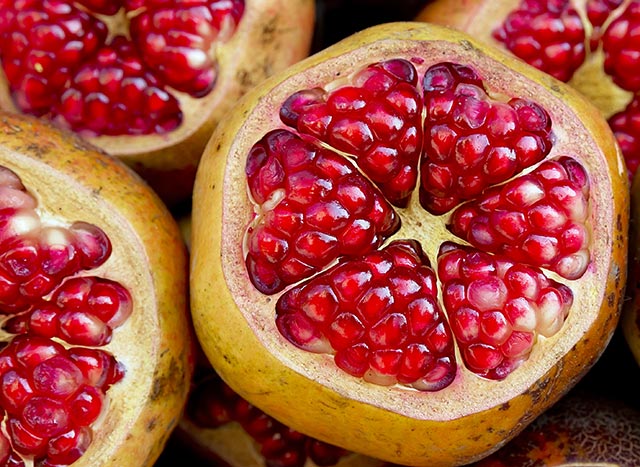
Cancer is the second leading cause of death globally, according to the World Health Organization. Cancer refers to a group of diseases characterized by the uncontrollable growth of abnormal cells in any organ or tissue of the body.
Hallmark features of cancer include the ability to evade apoptosis (programmed cell death), induce angiogenesis (the growth of new blood vessels that tumors need to grow), replicate limitlessly, produce growth signals that are self-sufficient, be insensitive to anti-growth signals, invade nearby tissue and metastasize (spread to another part of the body).
Fortunately, studies show that naturally occurring bioactive compounds from plants, also known as phytochemicals, can help reduce your risk of cancer. Many of these potent compounds also have the potential to be used in anticancer therapy. (Related: Plants against cancer: Eighteen 100% natural phytochemicals that prevent and treat cancers.)
Phytochemicals with known anticancer activities
Here are 12 natural cancer-fighting agents (in no particular order) and their plant sources:
Epigallocatechin gallate (EGCG)
Research published in the journal Nutrients has found that a potent compound in green tea called epigallocatechin gallate (EGCG) can effectively stop the proliferation of human colorectal cancer cells. Cell culture studies show that EGCG works by arresting the cell cycle (a series of events that include cell growth and division) and inducing apoptosis in cancer cells.
Salidroside and Rosavin
A study published in the journal Current Pharmacology Reports also found that the herb Rhodiola rosea (golden root) contains two potent anticancer compounds, namely, salidroside and rosavin, that can inhibit cell proliferation and induce apoptosis in various human cancer cell lines. These include bladder cancer, breast cancer, colorectal cancer, gastric cancer, glioma (brain tumor), sarcoma (cancer of the bones and soft tissues) and lung cancer cells.
Curcumin
A study published in the International Journal of Molecular Sciences reported that curcumin, the active compound in turmeric (Curcuma longa) exhibits unique yet potent anticancer activities. Curcumin is said to work against breast cancer, lung cancer, head and neck squamous cell carcinoma, prostate cancer and brain tumors by inhibiting the proliferation and invasion of tumors, suppressing various cell signaling pathways and inducing apoptosis.
Fucoxanthin
The marine carotenoid, fucoxanthin, is a promising bioactive compound for cancer therapy, according to a study published in the International Journal of Molecular Sciences. The study reported that fucoxanthin, which is found in brown seaweed, induces cell cycle arrest, apoptosis and/or autophagy in several cancer cell lines, such as lymphoma, leukemia, melanoma, sarcoma, lung, liver, gastric, colorectal, bladder, prostate, breast, cervical and neural cancer cell lines.
Punicalagin
Punicalagin is an ellagitannin found in the skin of pomegranates. In addition to antioxidant, anti-atherosclerotic and liver-protective properties, punicalagin also boasts antiproliferative and cancer-preventive activities. A study published in the journal Nutrients reported that punicalagin in pomegranate peel can suppress cancer cell proliferation and induce apoptosis in promyelocytic leukemia cells, colon cancer cells and glioma cells.
Beta-sitosterol
Beta-sitosterol is one of the most abundant plant sterols (phytosterols) in plants. Known for its potential to reduce bad cholesterol (LDL) levels, beta-sitosterol can be found in foods like rice bran, wheat germ, peanuts and soybeans, and in botanicals like saw palmetto, rye grass pollen, pygeum and stinging nettles.
A study published in the journal Frontiers in Oncology reported that beta-sitosterol exerts an anti-tumor effect on multiple malignant tumors, such as breast, gastric, lung, kidney, pancreatic and prostate cancers. It can also prevent the proliferation, invasion and metastasis of cancer cells and induce cancer cell apoptosis.
Genistein
According to epidemiological studies, high intake of the flavonoid known as genistein can decrease your risk of various human cancers. Genistein is said to work at the molecular level and stop cancer growth by activating tumor suppressor genes. Genistein can also trigger oxidative stress in cancer cells long enough to induce apoptosis. Genistein is a plant estrogen (phytoestrogen) commonly found in soy-based foods, such as soy milk, tofu, tempeh and miso. (Related: Healing cancer with food: Some recommendations.)
Saponins
Saponins are naturally occurring plant compounds that are known for their soap-forming nature. According to a study published in the journal Pathophysiology, different saponins have attracted scientific interest due to their anticancer activities, which include arresting the cell cycle, inhibiting cancer cell invasion and inducing apoptosis or autophagy (conserved degradation of cells). Some saponins have also been found to control the expression of proteins involved in cancer progression and metastasis.
The most abundant edible sources of saponins are legumes, such as alfalfa, lentils, chickpeas, lupins, kidney beans and soybeans. Triterpenoid saponins can also be found in sunflower seeds, ginseng root, tea leaves, licorice root, spinach seeds, quinoa and sugar beets.
Anthocyanins
A class of water-soluble flavonoids known as anthocyanins has also been reported to fight cancer effectively. Anthocyanins, which are blue, red and purple plant pigments, are highly abundant in many fruits and vegetables.
According to a study published in the British Journal of Pharmacology, anthocyanins are capable of inhibiting the transformation of cells into cancerous cells, suppressing cancer cell proliferation, arresting cancer cell cycle at different phases of cell division, promoting the expression of anticancer genes and downregulating the expression of pro-cancer genes.
Corilagin
The gallotannin known as corilagin was first isolated from divi-divi (Caesalpinia coriaria), a tree native to the Caribbean, Central America, Mexico and some parts of South America. It has also been found in the Alchornea glandulosa (amor seco) tree, which is native to South America, and the leaves of pomegranate shrubs.
According to a study published in the journal Biomedicine & Pharmacotherapy, corilagin has potent anti-inflammatory, liver-protective and anti-tumor properties that make it a promising therapeutic agent for clinical use. In cell culture studies, corilagin showed toxicity against hepatocellular carcinoma and ovarian cancer cells but not normal/healthy cells, suggesting that this anti-tumor agent may be a safer option for cancer therapy than conventional chemotherapeutic agents.
Sulforaphane
A sulfur-containing compound found exclusively in cruciferous vegetables, sulforaphane has been shown to reduce a person’s cancer risk by multiple studies. According to a review published in the journal Frontiers in Oncology, sulforaphane can protect against cancer by inhibiting the proliferation of cancer cells, arresting the cell cycle and enhancing the process of apoptosis. Meanwhile, sulforaphane derivatives have been shown to downregulate enzymes involved in cancer cell proliferation and angiogenesis.
To get high amounts of sulforaphane, include broccoli sprouts in your diet. Broccoli sprouts are the most abundant source of this anti-cancer compound and contain 20 to 50 times more sulforaphane than mature broccoli. (Related: Phytonutrients: Natural compounds in plant foods that help lower cancer risk.)
Plants are a veritable source of natural chemicals that can fight cancer just as fiercely as modern pharmaceuticals but without causing serious adverse effects. And the good news is, most of these cancer fighters are present in a wide variety of organic produce. To enjoy the anticancer benefits of these phytonutrients, add plenty of fruits and vegetables to your diet and make healthy lifestyle choices to maintain good overall health and prevent cancer.
Watch the following video to learn the importance and benefits of eating more purple vegetables.
This video is from the Groovy Bee channel on Brighteon.com.
More related stories:
9 Anti-cancer foods you cannot ignore.
Spotlight on cancer-fighting foods: What to eat to beat different kinds of cancer.
Researchers find that “plant-based” bilirubin is a potent antioxidant with anti-cancer properties.
Phytochemicals against prostate cancer.
Sources include:
BPSPubs.OnlineLibrary.Wiley.com
Submit a correction >>
Tagged Under:
alternative medicine, anthocyanins, anticancer, beta-sitosterol, corilagen, curcumin, epigallocatechin gallate, food cures, food is medicine, fucoxanthin, genistein, herbal medicine, Herbs, natural cures, natural health, natural medicine, Oncology, phytonutrients, plant medicine, punicalagin, research, rosavin, salidroside, saponins, sulforaphane
This article may contain statements that reflect the opinion of the author
RECENT NEWS & ARTICLES
COPYRIGHT © 2017 NATURAL MEDICINE NEWS


